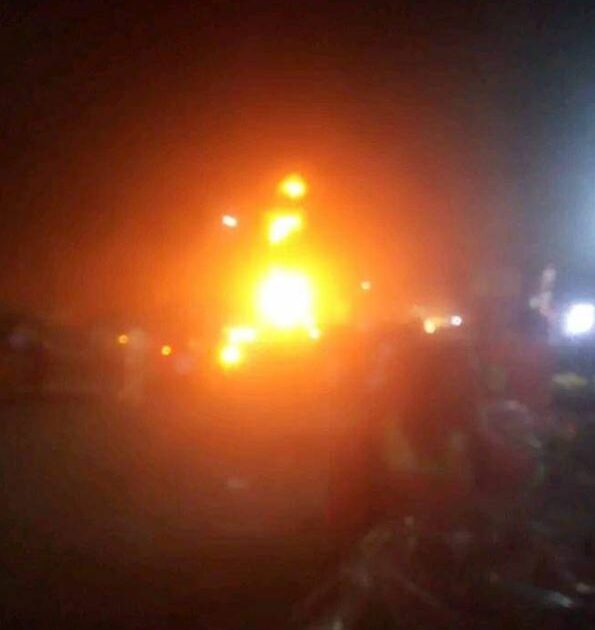The bustling mobile phone market in Farm Centre, Kano, was transformed into a scene of devastation on Friday as a raging inferno consumed over 300 shops, obliterating an estimated N100 billion worth of goods. The fire, which erupted in the early hours of the day, raged for over six hours, leaving a trail of destruction in its wake. Shop owners watched helplessly as their livelihoods went up in flames, their painstakingly built businesses reduced to ashes. The market, a hub for mobile devices, accessories, and repair tools, suffered an unprecedented loss, according to Jamilu Gama, the chairman of the market. The incident underscores the precarious nature of marketplaces, especially in densely populated areas, and the need for robust fire prevention and response mechanisms.
The scale of the destruction is staggering. Shops brimming with high-value merchandise, including mobile phones and sophisticated repair equipment, were completely gutted. Chairman Gama painted a grim picture of the losses, noting that individual shops contained inventories ranging from N50 million to a staggering N1 billion. This translates to a colossal collective loss for the traders, many of whom likely relied heavily on these businesses for their sustenance. The fire not only decimated their current stock but also wiped out years of investment and hard work, potentially leaving them with insurmountable debt and an uncertain future. The incident serves as a harsh reminder of the vulnerability of small businesses to unforeseen disasters and the importance of insurance coverage.
Adding to the tragedy is the uncertainty surrounding the cause of the fire. At the time of reporting, investigations were still underway, and no definitive explanation had been provided. This lack of clarity fuels speculation and anxiety among the affected traders and the wider community. Chairman Gama confirmed that authorities were working diligently to determine the origin of the blaze, but the absence of concrete information adds another layer of distress to an already devastating situation. The incident highlights the crucial role of thorough investigations in not only understanding the immediate cause of such disasters but also in identifying systemic issues and implementing preventive measures to avoid future occurrences.
The delayed response from official channels further compounded the situation. As of the initial report, both the Kano State Fire Service and relevant emergency agencies had yet to issue any formal statement regarding the incident. This silence can be interpreted as a lapse in communication, potentially hindering relief efforts and adding to the sense of chaos and uncertainty. In times of crisis, timely and accurate information dissemination is paramount, not only to inform the public but also to coordinate response efforts and manage the flow of aid and support to those affected. The lack of immediate official communication underscores the need for improved emergency response protocols and communication strategies.
This devastating fire at the Kano mobile phone market serves as a stark reminder of the vulnerability of commercial hubs to fire outbreaks, particularly in densely populated areas. The absence of a clear cause at the initial stage of reporting highlights the complexity of such incidents and the need for comprehensive investigations to determine the contributing factors. Beyond the immediate loss of goods and property, the fire’s impact extends to the livelihoods of hundreds of traders, potentially crippling their businesses and impacting the local economy. The incident underscores the importance of proactive fire safety measures, including regular inspections, adequate fire suppression equipment, and comprehensive training for market occupants.
Furthermore, the incident exposes the need for efficient emergency response mechanisms. The delay in official statements from relevant agencies underscores the importance of timely communication and coordinated action in mitigating the impact of such disasters. Effective disaster management requires a swift and organized response, involving all stakeholders, from fire services and emergency agencies to government bodies and community leaders. This includes not only containing the fire but also providing immediate support to the affected traders, facilitating investigations, and implementing long-term measures to prevent similar incidents. The Kano market fire serves as a wake-up call for improved disaster preparedness and response strategies to protect lives, livelihoods, and property in the future.














